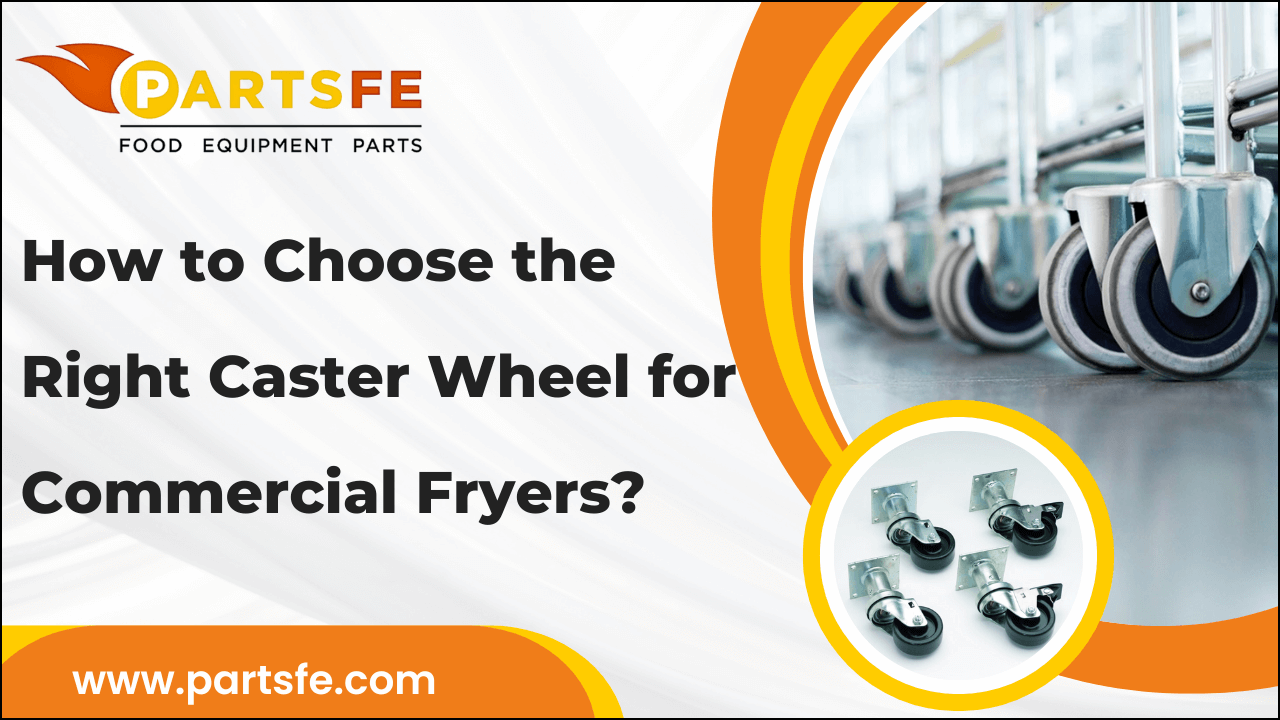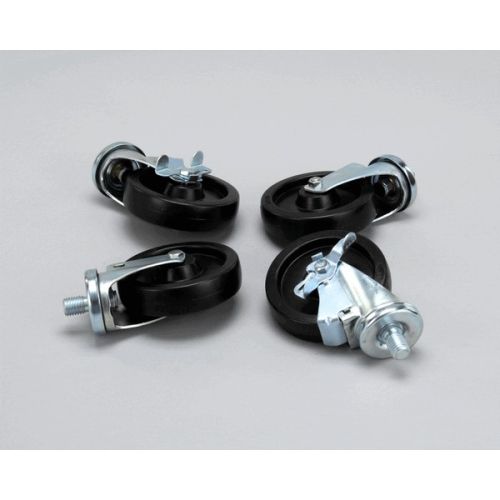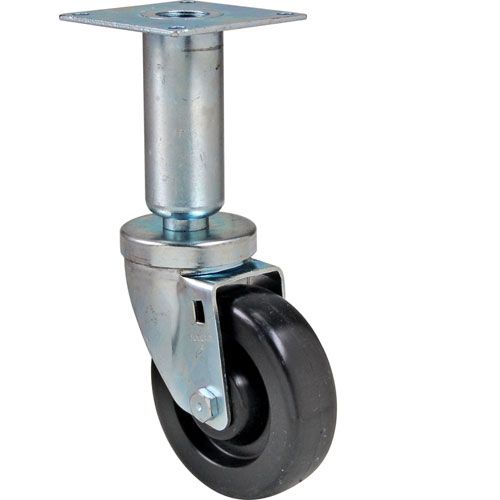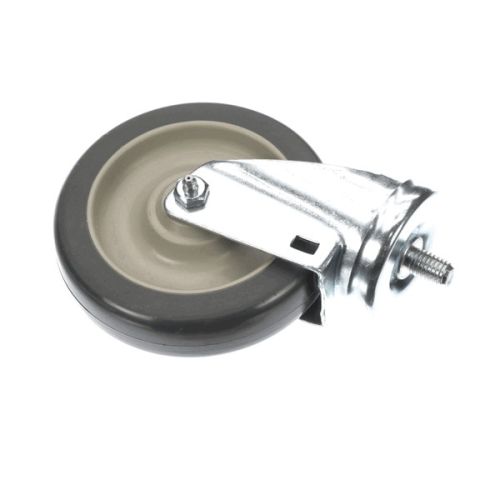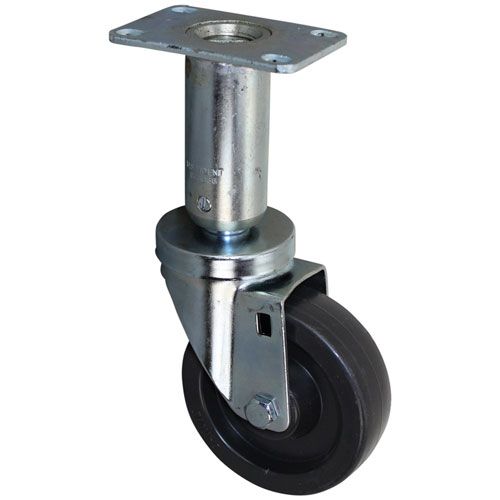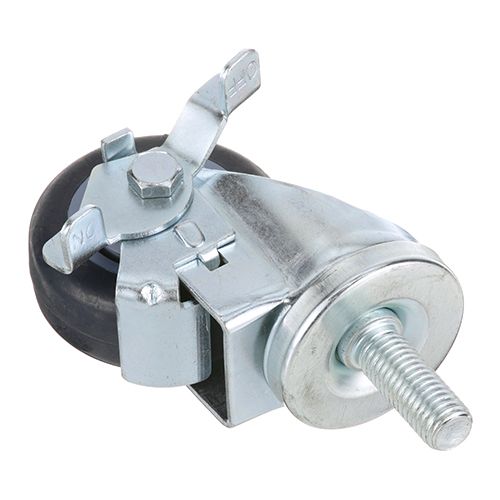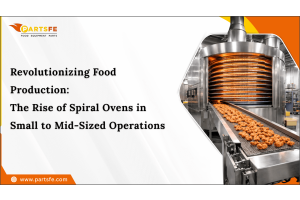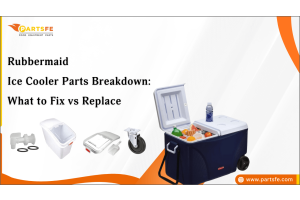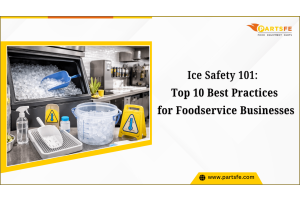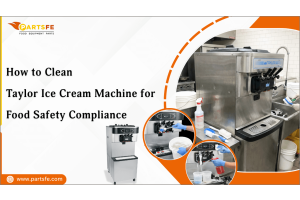How to Choose the Right Caster Wheel for Commercial Fryers
Choosing the right caster wheel for commercial fryers is essential to ensure safety, mobility, and long-term performance in a busy kitchen environment. Commercial fryers are heavy, often exposed to high heat, oil, and moisture conditions that demand durable and heat-resistant casters. The wrong caster can lead to equipment instability, difficult maneuverability, or even workplace accidents. With various options available, selecting the right caster involves understanding weight capacity, material compatibility, and specific environmental challenges. Whether outfitting a new fryer or replacing worn-out wheels, making an informed decision can help maintain kitchen efficiency and prevent costly downtime. This guide will walk you through key factors to consider when choosing caster wheels that meet the rigorous demands of commercial foodservice operations.
Why Caster Wheels Matter for Commercial Fryers
Caster wheels are critical for the smooth operation of commercial fryers in any professional kitchen. They ensure that fryers, which are typically heavy and difficult to move, can be easily relocated for cleaning, maintenance, and efficient space management. Without quality casters, fryers would become stationary and difficult to maneuver, potentially causing delays or hazards in busy kitchen environments.
Mobility and Flexibility:
-
Restaurants often need to reconfigure kitchen layouts due to changes in staff workflow or equipment updates.
-
The right caster wheel enables easy and safe movement of fryers.
-
Casters allow for the smooth repositioning of fryers, even in tight kitchen spaces.
-
Regular movement can help reduce the accumulation of debris and grease in hard-to-reach spots.
-
In busy kitchens, fryers may need to be moved frequently to adapt to demand, making good casters essential for efficiency.
Cleaning and Compliance:
-
Health regulations often require deep cleaning under and behind heavy equipment.
-
Casters allow you to roll the fryer out of its usual spot to clean hard-to-reach areas.
-
Moving fryers makes it easier to comply with health codes and avoid inspection violations.
-
Prevents grease buildup beneath the fryer, which can lead to hazardous conditions like fires.
-
With the right wheels, cleaning the fryer’s exterior and maintaining a hygienic workspace becomes much easier.
Safety:
-
Poor-quality casters can lock up, collapse, or even melt under high temperatures, putting staff at risk and causing potential equipment damage.
-
Inadequate casters can make moving fryers hazardous, particularly when shifting heavy equipment.
-
Casters with locking mechanisms prevent accidental movement, enhancing stability during use.
-
A smooth-rolling fryer reduces the risk of injury from lifting or dragging heavy equipment.
-
Choosing the wrong wheels can cause a fryer to tip or become unstable, posing safety hazards for kitchen staff.
Floor Protection:
-
The wrong caster can scratch, dent, or damage commercial kitchen flooring.
-
High-quality wheels distribute weight evenly and move smoothly, preventing flooring issues.
-
Casters with softer treads (like rubber or polyurethane) are better for delicate floors and reduce the risk of indentations.
-
Properly selected casters can prevent friction or heat transfer, protecting your floor from damage caused by excessive wear.
-
Floor-friendly wheels help maintain a safe environment by avoiding tripping hazards or uneven surfaces.
Want to replace worn-out caster wheels on your commercial fryer? PartsFe has you covered with top-quality parts from trusted brands like Pitco, Frymaster, and Hobart. Explore our selection of high-temp casters, locking wheels, Swivel casters, and complete fryer caster kits to keep your kitchen running smoothly.
Types of Caster Wheels Suitable for Commercial Fryers
Choosing the right caster wheels for commercial fryers is essential for maintaining equipment longevity, safety, and operating effectiveness. Different caster types offer distinct features tailored to specific kitchen environments and fryer demands.
-
High-Temperature Casters: High-Temperature Caster wheels are specifically designed to withstand extreme heat, often made from materials like phenolic resin or high-temp rubber. Ideal for fryers that radiate intense heat.
-
Swivel Casters: Swivel casters rotate 360 degrees, allowing for easy turns and flexible movement in tight kitchen spaces. They are best used in front-wheel positions.
-
Heavy-duty Casters: Heavy-duty fryer casters are designed to support high-weight loads and withstand extreme kitchen conditions, including heat and grease. They offer enhanced durability, mobility, and safety for commercial fryer equipment.
-
Rigid Casters: These casters provide heavy machinery stability by moving in a straight line. They are typically installed in the rear to balance maneuverability with steadiness.
-
Locking Casters: To prevent unintentional movement during use, locking casters are a must. Double-lock mechanisms on certain features secure the swivel head and wheel.
-
Stainless Steel Casters: Corrosion-resistant and hygienic, these are excellent for high-moisture environments like kitchens. They’re durable and easy to clean.
-
Oil-Resistant Casters: These are coated or constructed from materials that resist damage from oil, grease, and food acids, a must for fryer stations.
Common Issues Caused by the Wrong Caster Wheel
Using the wrong caster wheels for your commercial fryer can lead to several problems, affecting both the safety and efficiency of your kitchen operations. Here are some common issues that arise:
-
Heat Damage: Standard wheels can't handle fryer heat, leading to melting or warping. This compromises safety and may cause wheel failure during operation.
-
Floor Damage: Hard or poorly designed casters can scratch and dent kitchen floors. Damaged flooring increases repair costs and creates slip hazards.
-
Immobility: Underrated casters may lock up or jam under the fryer’s weight. This prevents safe movement for cleaning or repositioning tasks.
-
Instability: Non-locking or mismatched casters can cause unwanted fryer movement. This increases the risk of spills, tipping, and staff injuries.
-
Frequent Replacements: Cheap or incompatible casters wear out quickly, causing frequent replacements and downtime. Using high-quality commercial fryer replacement parts reduces maintenance and prevents unexpected disruptions.
-
Increased Maintenance Costs: Wrong casters can strain fryer parts and speed up wear. Over time, this leads to higher repair and maintenance expenses.
Check out this troubleshooting Pitco fryers to identify common problems and find effective solutions.
Steps to Choose the Right Caster Wheel for Commercial Fryers
Selecting the right caster wheel for your commercial fryer requires careful consideration of several important factors. Use the following steps to help you choose the most suitable option for your kitchen setup and operational needs.
Step 1: Calculate Load Capacity
-
Weigh the fryer, including oil and food contents.
-
The number of casters is divided by the overall weight.
-
Choose casters rated at least 25% higher than the required load per wheel.
-
Overloading may result in safety hazards or early failure.
Step 2: Check Temperature Resistance
-
Fryers generate high heat that many standard casters can’t handle.
-
Select casters rated for at least 400°F (204°C) or higher.
-
Heat-resistant materials prevent melting, warping, or seizing.
Step 3: Choose the Right Wheel Material
-
Phenolic Wheels: Provide excellent heat resistance but may scuff or damage soft flooring if not handled properly.
-
High-temp Rubber: Offers quiet, smooth movement and is gentle on floors, though slightly less heat-resistant than phenolic wheels.
-
Polyurethane: Resists oils and grease effectively, but is not recommended for environments with direct high heat.
Step 4: Match Wheels to Floor Type
-
Soft wheels are ideal for tile or delicate surfaces.
-
Hard wheels are better suited for smooth concrete or hard floors.
-
Matching wheel material to flooring helps prevent wear and damage.
Step 5: Swivel and Rigid Casters
-
Use two swivel casters at the front for flexible movement.
-
Install two rigid casters at the back for directional stability.
-
A mixed setup provides both maneuverability and control.
Step 6: Opt for Locking Mechanisms
-
Choose casters with reliable locking features.
-
Double-lock casters secure both the wheel and the swivel action.
-
Prevents fryer movement during use or cleaning for added safety.
Step 7: Verify Industry Standards
-
Ensure casters meet foodservice standards like NSF, ANSI, or CSA.
-
Certified casters guarantee compliance, hygiene, and safety.
-
Proper certification also ensures long-term durability in commercial environments.
Step 8: Evaluate Wheel Size and Design
-
Larger wheels offer easier maneuverability and can handle heavier loads more effectively.
-
Consider the design of the wheel (e.g., tread type) to ensure it performs well under the specific demands of your kitchen environment.
-
Choose wheels with a flat or smooth tread for quiet, easy rolling on smooth surfaces.
-
For increased stability and traction on rough terrain, use wheels with a more durable tread.
Check out this step-by-step guide on how to replace your deep fryer filter to keep your equipment running efficiently.
Maintenance Tips to Extend the Life of Fryer Caster Wheels
Proper maintenance of fryer caster wheels is essential for ensuring long-term performance, safety, and cost efficiency in a commercial kitchen. Here are key tips to extend their lifespan:
-
Inspect for Wear and Tear: Check casters regularly for cracks, flat spots, and loose components. Identifying damage early can help you avoid safety hazards and expensive repairs.
-
Clean Regularly: Clean the caster wheels weekly using a degreaser to remove grease, food particles, and buildup. This prevents clogs and keeps the wheels moving freely.
-
Lubricate Moving Parts: Apply high-temperature grease to the wheel bearings and swivel joints at least once a month. Proper lubrication minimizes wear caused by friction and guarantees smooth functioning.
-
Tighten Hardware: Periodically inspect and tighten bolts, nuts, and mounting plates on the casters. Loose hardware can cause instability or allow the caster to detach during use.
-
Avoid Overloading: Always follow the manufacturer's weight capacity guidelines for each caster. Exceeding limits can cause wheels to bend, fail, or damage kitchen flooring.
-
Replace Sets: When one caster is damaged or worn out, replace all casters at the same time. This ensures even support, smoother movement, and better performance overall.
Read this ultimate guide to commercial air fryers: how to choose and clean, and maintain commercial fryer components.
Selecting the right caster wheels for commercial fryers is an essential decision that directly impacts the efficiency, safety, and longevity of kitchen operations. From enabling easy mobility for cleaning and maintenance to preventing damage to floors and equipment, the right casters ensure smooth, hassle-free operations. By selecting wheels with the appropriate load capacity, temperature resistance, and material, you can avoid common issues like overheating, wear and tear, and instability.
Regular maintenance of fryer casters, such as cleaning, lubrication, and timely replacements, further extends their life and ensures safe use. Investing in high-quality casters is a simple yet vital step in making your kitchen safer and more functional. Over time, the proper caster wheels improve overall productivity and safety in your commercial kitchen, as well as saving repair costs and downtime.
FAQs
How do I know what size casters to use?
Measure the equipment’s weight and clearance height, then choose casters that support the load and fit the mounting space.
Is it better to have 4 swivel casters or 2?
Two swivel casters and two rigid ones offer better control and stability; four swivel casters allow maximum maneuverability but less directional control.
How do ball casters work differently from wheels?
Ball casters rotate in all directions using a spherical ball, offering smoother, more flexible movement than standard fixed-direction wheels.
How to remove caster wheels?
Secure the equipment, then unscrew or unbolt the casters from the base. Use pliers or a wrench for added leverage if needed.
What are the best caster wheels for restaurant kitchen fryers?
The best caster wheels for restaurant kitchen fryers are heat-resistant, oil-proof, and made from materials like phenolic resin or high-temp rubber.

